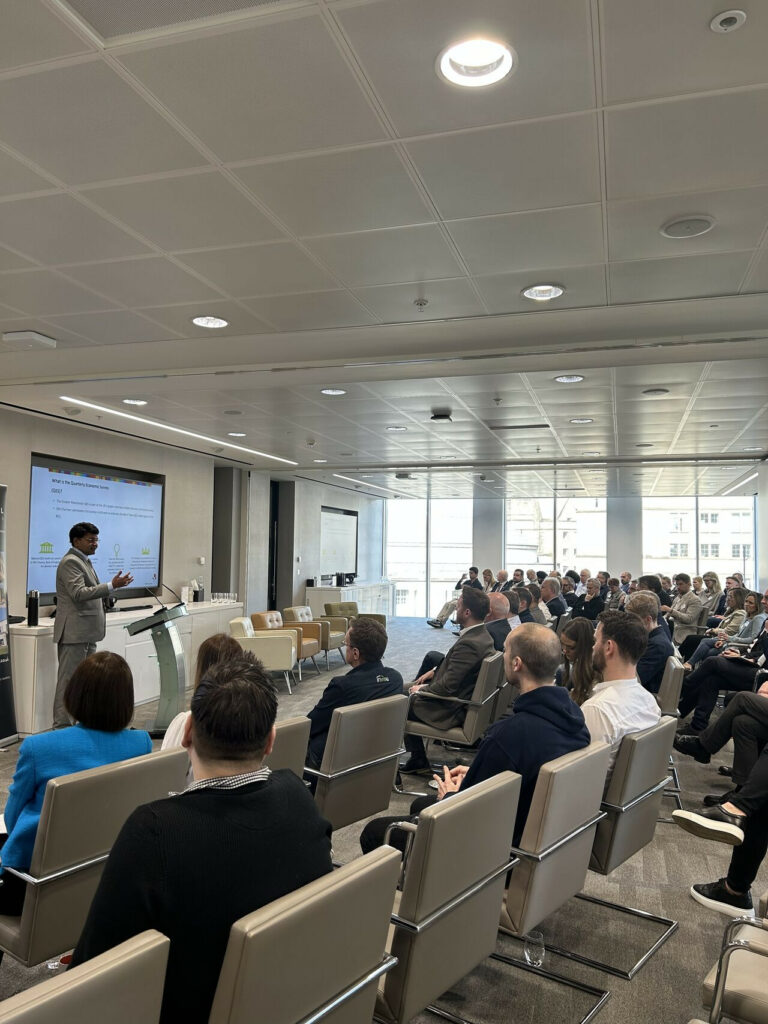Chancellor Rachel Reeves announced benefit cuts worth £4.8 billion as she outlined her economic plans for the UK in her Spring Statement.
Meanwhile, the Office for Budget Responsibility (OBR), responsible for assessing government spending plans, released its latest economic forecasts.
It revealed taxes will rise from 35.3pc of gross domestic product (GDP) to a new high of 37.7pc in 2027-28.
The chancellor blamed increased global uncertainty as the OBR halved Britain’s growth forecast for this year to 1%. Inflation is forecast to average 3.2% this year, up from 2.6% previously forecast.
However, the OBR indicated that without taking action, Ms Reeves would have missed her goal of balancing the nation’s books.
She also told the House of Commons that the government would be running a budget surplus of £6 billion by 2027-28, adding: “I said at the election that we could not simply tax and spend our way to prosperity. We need growth.”
Reeves said additional savings would be clawed back from Universal Credit (UC).
She added: “The OBR (Office for Budget Responsibility) have said that they estimate the package will save £4.8 billion in the welfare budget, reflecting their judgments on behavioural effects and wider factors.
“This also reflects final adjustments to the overall package, consistent with the Secretary of State’s statement last week and the Government’s Pathways to Work Green Paper.
“The universal credit standard allowance will increase from £92 per week in 2025-26 to £106 per week by 2029-30, while the universal credit health element will be cut by 50% and then frozen for new claimants.”
Tom Clougherty, executive director of the Institute of Economic Affairs think tank, said: “The chancellor is right to cut spending rather than raise taxes again, and the cuts she has made are welcome. There is, nevertheless, a sense of unreality about all this. Policy is being determined by an arbitrary, moving target – a fiscal rule – rather than with any long term, principled strategy in mind.
“When you look at the sluggish growth forecasts, and the enormous liabilities the state will encounter as the population ages, Britain’s cycle of fiscal events feels a lot like rearranging the deck chairs on the Titanic.”
Mike Parkes, technical director at GoSimpleTax, said: “The chancellor once again mentioned plans to tackle tax avoidance and evasion, announcing further investment into HMRC to raise an additional £1 billion. While this is likely to be aimed at serious and intentional offenders, it’s a reminder that it’s more important than ever for self-employed people to stay on top of their finances and tax obligations to avoid falling foul of any clampdowns.”
There were also plans announced to raise defence spending to 2.5% by April 2027, funded by international aid cuts, while NHS England is be scrapped, with savings to fund patient care directly. It was also muted that a plan to cut civil service costs by 15%, would save £2.2 billion by the end of the decade.
The OBR said that housebuilding will reach a 40-year high, hitting 305,000 homes a year by the end of the forecast period.
The government will launch a construction training package to train up to 60,000 workers to build the homes, as well as investing an additional £2 billion in social and affordable housing.
Timothy Douglas, head of policy and campaigns for Propertymark, said: “The Spring Statement had a clear focus on the vital role housing plays in the UK economy and as part of the UK Government’s plan for growth, so it is encouraging to hear that planning reforms will boost national income.
“However, workforce challenges remain and it’s vital that local councils have the resources required to deliver effective planning and infrastructure so communities up and down the country and the wider economy really benefit.”













